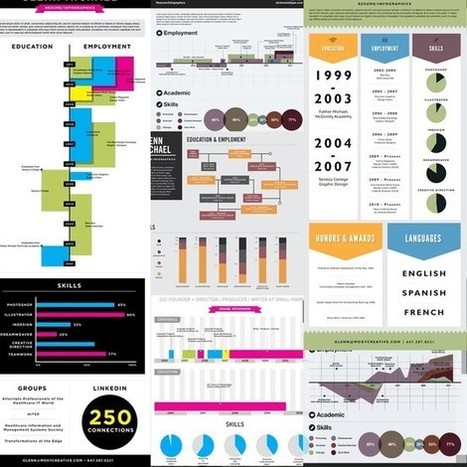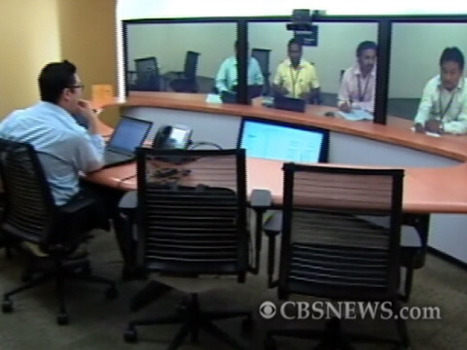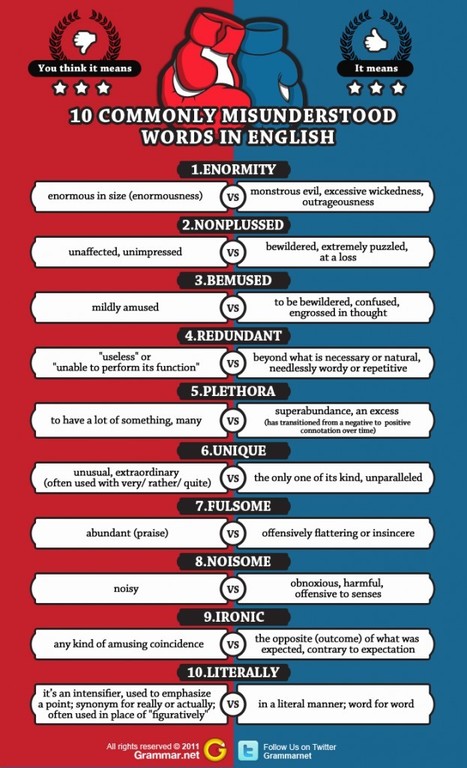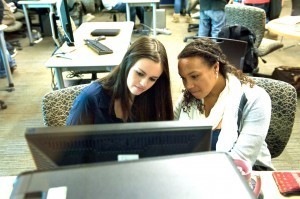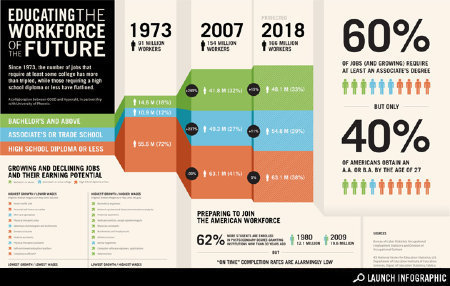Get Started for FREE
Sign up with Facebook Sign up with X
I don't have a Facebook or a X account

 Your new post is loading... Your new post is loading...
 Your new post is loading... Your new post is loading...
No comment yet.
Sign up to comment
At a session here at the annual higher education meeting of the Southern Association of Colleges and Schools, officials from Virginia Tech tried to challenge the audience’s assumptions that large classes are necessarily bad learning experiences. Peter Doolittle, director of the Center for Instructional Development and Educational Research at Virginia Tech, didn’t ever say that everything students and professors like about more intimate instruction can be replicated in a large class. Rather, he argued that "large classes aren’t going anywhere any time soon." Faculty members can "keep butting our heads against the wall" demanding more small classes, or they can focus on making larger classes better, he said. . . Your Resume As an Infographic. A well-designed infographic can be an intriguing part of a job-search package in some professions. However, an infographic should always complement a conventional resume not try to replace it. Software is now available that makes creating an infographic resume easy. (Note: Bovee & Thill's Excellence in Business Communication, 10th Ed., is the only business communication text on the market that illustrates an infographic resume.) CBS News video: Workplace of the Future - KHOU's Brad Woodard looks at Accenture's Office of the Future, a space that embodies concepts that focus on the way a younger work force works best. It is meeting space. Bovee and Thill offer innovative ideas and resources for teaching business communication, so instructors can spend less time preparing and more time teaching.
Bovee & Thill's Online Business Communication Magazines's insight:
The widespread adoption of wikis in both business and higher education is a testament to the collaborative value of wiki technology. However, wiki collaboration does require a broader set of skills than traditional business communication requires. It also requires a different approach to communication, one in which the authorial “me” is superseded by the collaborative “us.”Evaluating, editing, and revising the work of other writers. Before getting your students started on wiki projects, it’s a good idea to offer some coaching in evaluating, editing, and revising the work of other writers. These tips are helpful in a variety of communication situations, of course, but they’re essential for wiki collaboration. Before making substantive changes to an article, students should consider the following questions: . . . Note: You can give your students the opportunity to develop wiki skills in a secure, confidential environment. The unique Bovée/Thill wiki simulator lets students practice evaluating and revising wiki articles using a real, live wiki editor. Unlike a conventional wiki, however, this system saves each student’s work separately and privately so that you can evaluate his or her ability to assess an article with numerous built-in flaws and make the corrections needed to improve readability and achieve the “you” attitude. Click on the title of this post to be taken to the URLs for Bovee & Thill's two wikis. Here is a list of 50 terrific for how to use Twitter in an educational setting. An overview of Twitter and ways of using it in education. A Twitter primer with reasons, stories and resources. . .
|
The U.S. economy is allegedly improving, but try telling that to 4,500 employees who are losing their jobs at Citigroup or 30,000 who will leave Bank of America in the next few years. Looking at what lies ahead for business communication, this recent article in Workforce Magazine certainly caught our attention. The consulting firm MBO Partners predicts that over half the U.S. workforce will be independent by 2020! Reaching that threshold would require an increase from 16 million independent workers today to 70 million in just eight years, but even if the eventual growth falls short of that forecast, the rapid increase in unattached professionals is dramatically reshaping the nature of business—and business communication. . . Adopting a new communication tool is not easy. Figuring out the best way you can use Twitter is even harder. Luckily you are not going it alone. We have culled the following resources from an array of websites that try to help anyone understand and better use Twitter. If you haven’t yet taken the plunge, perhaps the following 100 resources should help you. . . Should every teacher use humor? These authors say that humor isn’t an essential feature of good teaching. They acknowledge that some people just aren’t very funny—humorless aptly describes several professors and administrators I’ve known. If you aren’t all that funny but would like to accrue the benefits of humor, consider using the humor of others. You can post a cartoon on a PowerPoint slide and not have to say a word about it. . . In today’s dynamic classrooms, the teaching and learning process is becoming more nuanced, more seamless, and it flows back and forth from students to teachers. Here’s a look at current trends in teaching and learning, their implications, and changes to watch for. Via Dennis Richards Here are 345 search engines at your fingertips--all on one page--for quick, comprehensive web searching, developed by Bovee & Thill. In the next decade, most jobs will require at least some post-high school education. Are we setting students up for career success? Via thomesss Are you using Twitter yet? If not, you may want to read how other educators are using Twitter as an education tool. For those who are coming up to speed, Twitter lets you broadcast or microblog your messages (140 characters max) to a group of friends or other subscribers, who can receive them as text messages, called a "tweet," to your subscribers and their mobile phones. Since almost everyone has a mobile phone now this makes Twitter more effective as a communication tool. . . (Photo: Ron Jones, author) College graduates have the potential to earn millions of dollars more over their lifetime than do those that did not complete a college degree. See the numbers here! Via Tami Highbaugh Lake Superior State University's 2011 List Of Banished Words . . .
|





